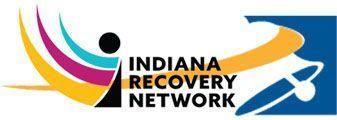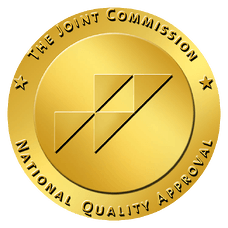Complete the pre-screen form below to initiate the admission process. Our admissions team will contact you shortly.
Dialectical Behavior Therapy for Addiction Treatment
Addiction treatment can encompass a range of therapeutic interventions tailored to meet individual needs. One such effective approach is Dialectical Behavior Therapy (DBT), renowned for its success in addressing substance use disorders alongside co-occurring mental health challenges.
This page will delve into what DBT entails, how it functions, and what you can anticipate when integrating DBT into a comprehensive addiction treatment program at Wabash Recovery.
What Is Dialectical Behavior Therapy?
Dialectical Behavior Therapy (DBT) is a research-backed treatment that integrates two contrasting principles—acceptance and change—aimed at diminishing emotional dysregulation and assisting individuals in cultivating a fulfilling life. Originally created by Dr. Marsha Linehan for the treatment of chronically suicidal individuals, DBT has since been adapted to address various severe mental health issues, including substance use disorders.
As a therapeutic approach for addiction, DBT can be implemented in the following settings:
1. Individual therapy
2. Group therapy
3. Teletherapy
4. Supervision for therapists
While DBT is a form of
Cognitive Behavioral Therapy (CBT), it is distinct in several ways. CBT primarily concentrates on identifying and challenging unhealthy thoughts to influence behavior change. In contrast, DBT places greater emphasis on the acceptance and validation of uncomfortable thoughts and feelings. This acceptance enables individuals to come to terms with certain issues, allowing them to focus on changing other troublesome aspects of their lives. Therapists utilizing DBT guide individuals in achieving a balance between acceptance and change.
How Does Dialectical Behavior Therapy (DBT) Work?
Dialectical behavior therapy (DBT) is designed to validate patients' struggles with life's challenges while instilling a sense of hope for change, even amidst setbacks.
DBT comprises five distinct functions:
Function 1: Enhancing capabilities. Individuals grappling with substance use disorders or severe mental health issues often need to develop or strengthen crucial life skills, such as emotional regulation, mindfulness, interpersonal effectiveness, and distress tolerance. Skill improvement may take the form of lessons, active practice, discussions, or homework assignments, enabling patients to practice new skills beyond therapy sessions.
Function 2: Generalizing capabilities. Another essential aspect of DBT is assisting individuals in applying their newly acquired or refined skills in everyday life. Therapists collaborate with patients to facilitate the integration of these life skills into their daily routines.
Function 3: Improving motivation and lessening dysfunctional behaviors. Therapists work closely with patients to identify and monitor problematic behaviors. Sessions prioritize understanding and addressing specific behaviors, with a focus on life-threatening actions receiving the utmost attention.
Function 4: Enhancing and sustaining therapist capabilities and motivation. While working with individuals facing severe mental health challenges can be immensely gratifying for therapists, it can also exert considerable stress. This DBT function provides therapists with encouragement and support through consultation-team meetings, where they can collaboratively address challenges encountered in their practice.
Function 5: Structuring the environment. A vital function of DBT involves organizing the environment to discourage problematic behaviors while fostering progress. This applies both to the therapeutic setting and to empowering individuals to modify their environments outside of treatment.
Throughout each session, a DBT therapist will assist the patient in identifying unhealthy and life-threatening behaviors. These behaviors are tackled in a hierarchical manner as follows:
- Diminishing life-threatening behaviors, such as suicidal or homicidal tendencies
- Reducing behaviors that disrupt therapy, including attendance while intoxicated or dissociating during sessions
- Minimizing behaviors that negatively impact quality of life through their consequences, such as domestic violence, homelessness, substance use, or probation breaches
- Increasing behavioral skills.
What Does DBT Treat?
DBT was first introduced for chronically suicidal patients and those with borderline personality disorder (BPD). Since then, DBT has been found useful for the treatment of various mental health conditions, including:
- Depression.
- Anxiety.
- Eating disorders.
- Substance use disorders.
Dialectical Behavior Therapy for Addiction Treatment
In addiction treatment, Dialectical Behavior Therapy (DBT) treats substance use as a critical behavior that significantly impacts an individual's quality of life. The specific substance use behaviors targeted during DBT therapy include:
- Reducing the use of drugs and alcohol.
- Alleviating the physical symptoms of withdrawal or abstinence.
- Lessening cravings or urges to use substances.
- Avoiding or minimizing triggers and opportunities for substance use.
- Decreasing behaviors that facilitate or promote substance consumption.
- Enhancing engagement with healthy relationships and community support for substance avoidance.
At the core of recovery is the goal of achieving abstinence. Patients are encouraged to promptly cease substance use, with a clear expectation of abstinence (or change) being set.
However, the notion of an indefinite period of complete abstinence may seem daunting. Therefore, a realistic objective is created. Goals of abstinence for a day, a month, or even a few minutes become the focus.
When these goals are reached, the patient renews their commitment for another specified time frame. Gradually, these incremental changes accumulate, leading to extended periods of abstinence. In addition, various strategies can be employed to prepare individuals for potential temptations in order to help them maintain their abstinence in the long run.
Should a relapse occur, acceptance is encouraged, with the emphasis shifting to helping the person "fail well." Rather than succumbing to feelings of inadequacy or perceiving treatment as a failure, a DBT therapist aids the patient in reflecting on the experience and extracting valuable lessons from it. This approach fosters acceptance while still motivating the individual toward change.
DBT for drug and alcohol addiction is often implemented alongside other behavioral therapies, including cognitive behavioral therapy, motivational interviewing, and more.
Find a Dialectical Behavior Therapy Program Near Indianapolis, IN
If you're facing challenges with drug or alcohol misuse or addiction, it's time to seek the help you truly deserve. Contact our inpatient rehab facility near Indianapolis to connect with one of our skilled and compassionate rehab admissions navigators. They are available to address any questions you might have, including inquiries about using insurance to cover rehab costs and the various levels of addiction treatment we provide.
Call us today at
(765) 780-7689 and embark on your journey toward recovery right now.
You aren't alone. You deserve to get help.
Wabash Recovery is located in Kokomo, Indiana, which is easily accessible from Indianapolis.
Take your next step toward recovery:
✔ learn more about our addiction treatment programs.
✔ see how popular insurance providers such as Aetna or BlueCross offer coverage for rehab.
✔ view photos of our facility.



